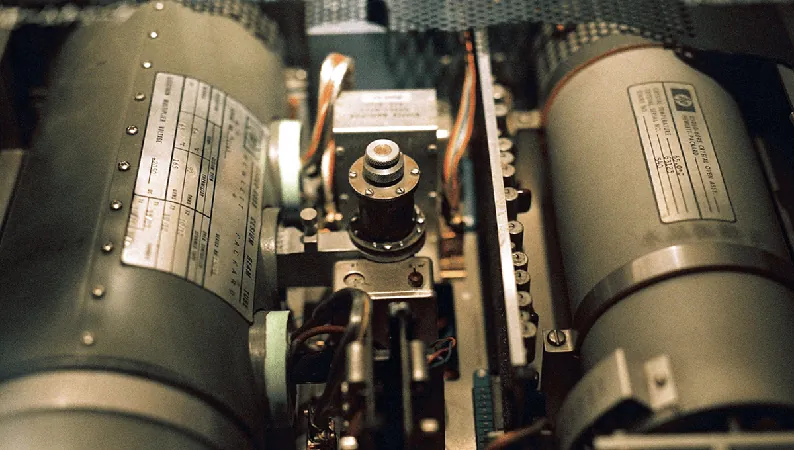
This Groundbreaking Experiment with Atomic Clocks Could Unravel the Universe's Biggest Mystery
2025-07-27
Author: Lok
Are We on the Verge of Uncovering a Theory of Everything?
Imagine if we could bridge the gap between two of the most powerful theories in physics: quantum mechanics and general relativity. Quantum mechanics has revolutionized our understanding at the atomic level, while general relativity, proposed by Einstein, explains gravity as the curvature of spacetime around matter. However, these two frameworks often clash, leading scientists to seek a unified theory that reconciles them.
The Quantum-Gravity Clash: What's the Problem?
Quantum physics operates under principles that defy intuitive understanding, such as the Heisenberg uncertainty principle, which asserts that not all properties of a particle can be known simultaneously with precision. This presents a significant challenge when trying to merge quantum mechanics with the gravity described by general relativity.
Attempts to create a theory that unifies these concepts often lead to inconsistencies and complications, suggesting that both our understanding of gravity and quantum mechanics may need to evolve.
Could Gravitational Effects Be Measured in Quantum States?
Historically, testing quantum gravitational effects has seemed impossible due to the extreme energies required. However, recent discussions suggest that these effects might be measurable, especially when dealing with massive objects in quantum superposition. As physicist Sabine Hossenfelder points out, if we can measure the gravitational impact on an object existing in multiple states, we may uncover how gravity behaves at the quantum level.
A Radical New Experiment with Entangled Atomic Clocks!
In a thrilling new proposal by physicists Igor Pikovski, Jacob Covey, and Johannes Borregaard, a unique experiment is suggested that may shed light on the relationship between quantum mechanics and gravity. Their innovative approach involves using entangled atomic clocks situated a kilometer apart.
In this setup, while the clocks exist in a state of superposition, they would register different times due to their varying positions in Earth's gravitational field. This could offer unprecedented insights into how time, gravity, and quantum phenomena interact.



 Brasil (PT)
Brasil (PT)
 Canada (EN)
Canada (EN)
 Chile (ES)
Chile (ES)
 Česko (CS)
Česko (CS)
 대한민국 (KO)
대한민국 (KO)
 España (ES)
España (ES)
 France (FR)
France (FR)
 Hong Kong (EN)
Hong Kong (EN)
 Italia (IT)
Italia (IT)
 日本 (JA)
日本 (JA)
 Magyarország (HU)
Magyarország (HU)
 Norge (NO)
Norge (NO)
 Polska (PL)
Polska (PL)
 Schweiz (DE)
Schweiz (DE)
 Singapore (EN)
Singapore (EN)
 Sverige (SV)
Sverige (SV)
 Suomi (FI)
Suomi (FI)
 Türkiye (TR)
Türkiye (TR)
 الإمارات العربية المتحدة (AR)
الإمارات العربية المتحدة (AR)